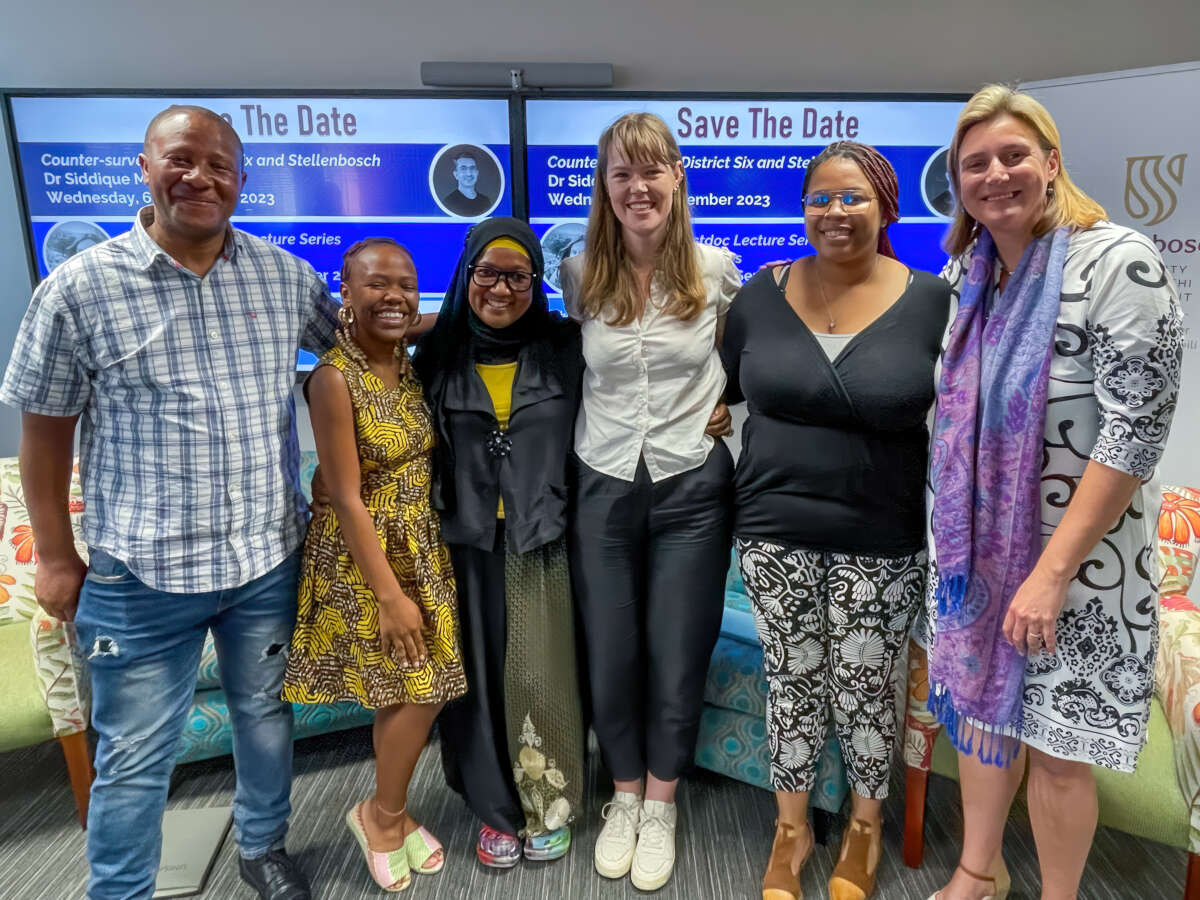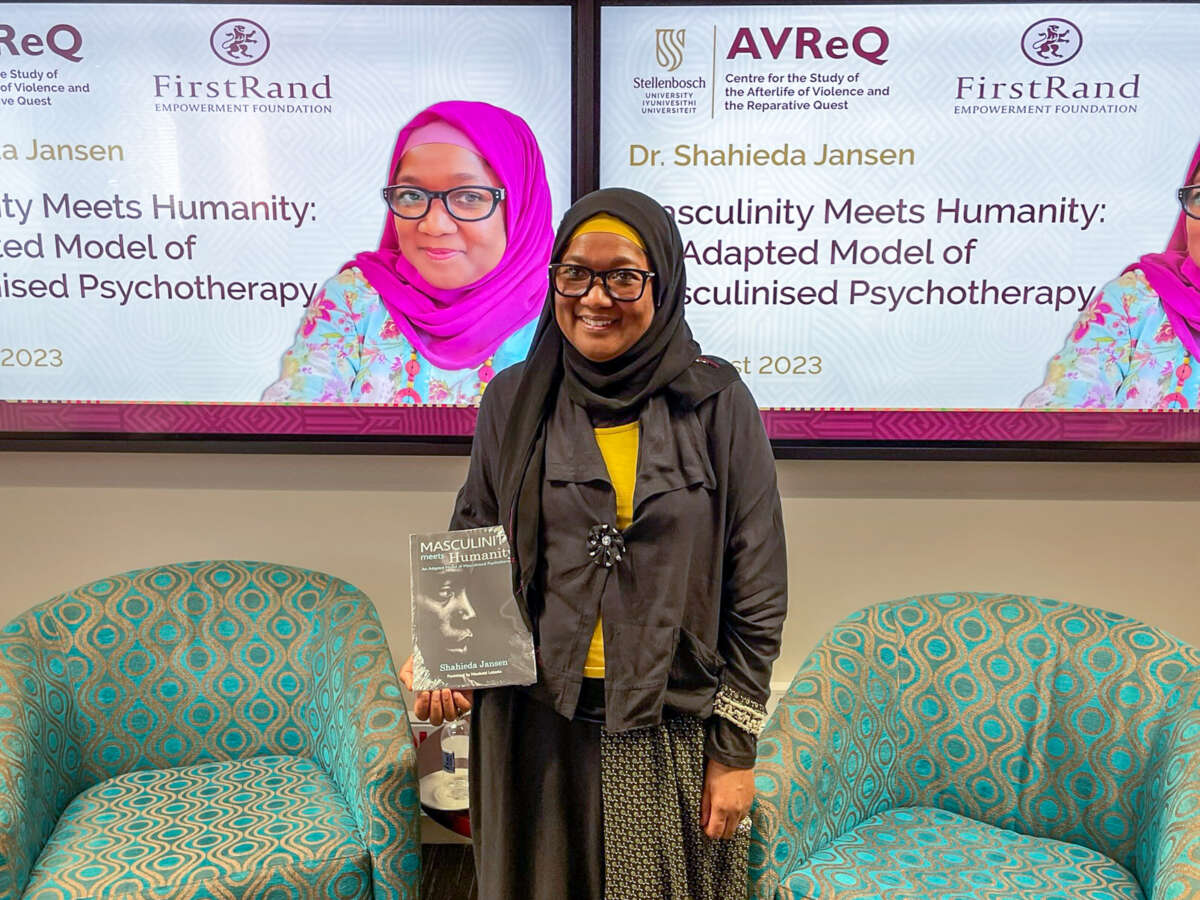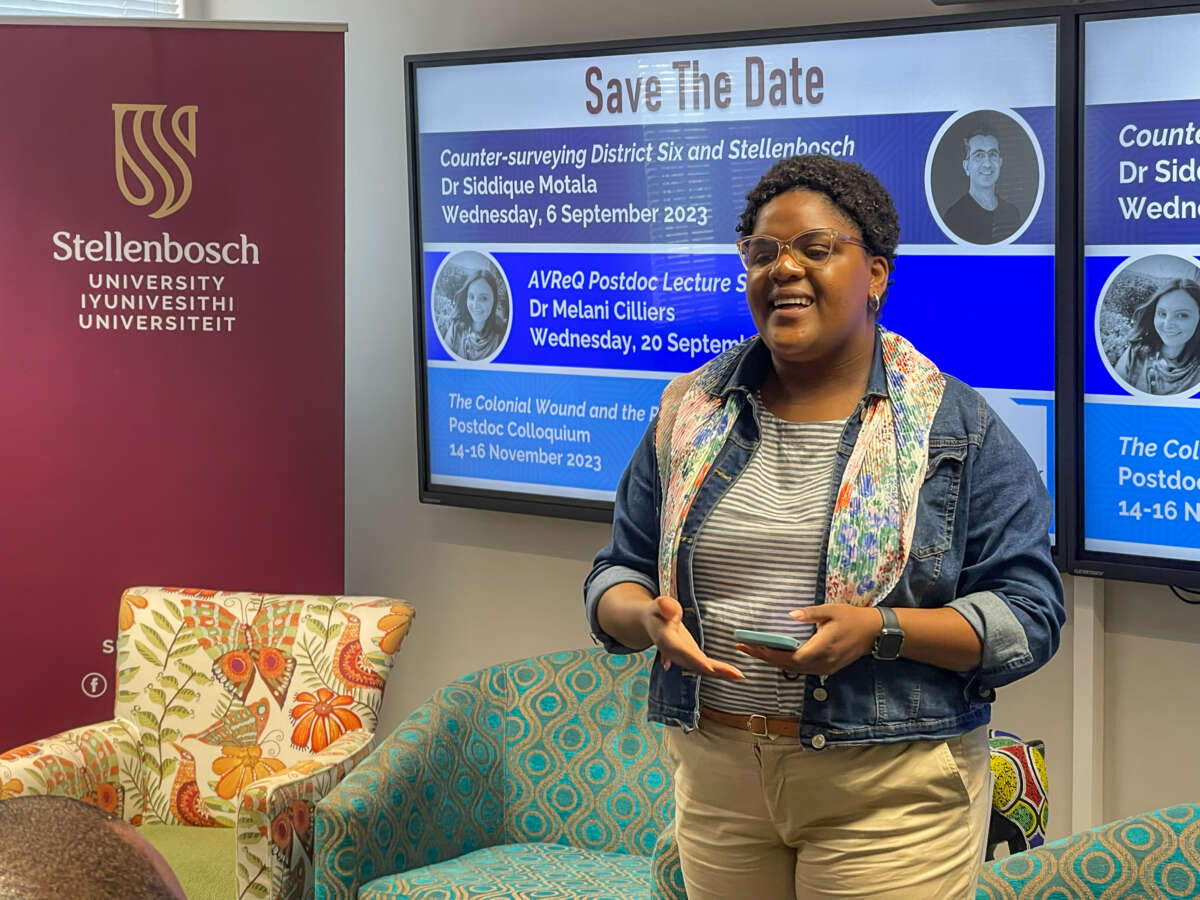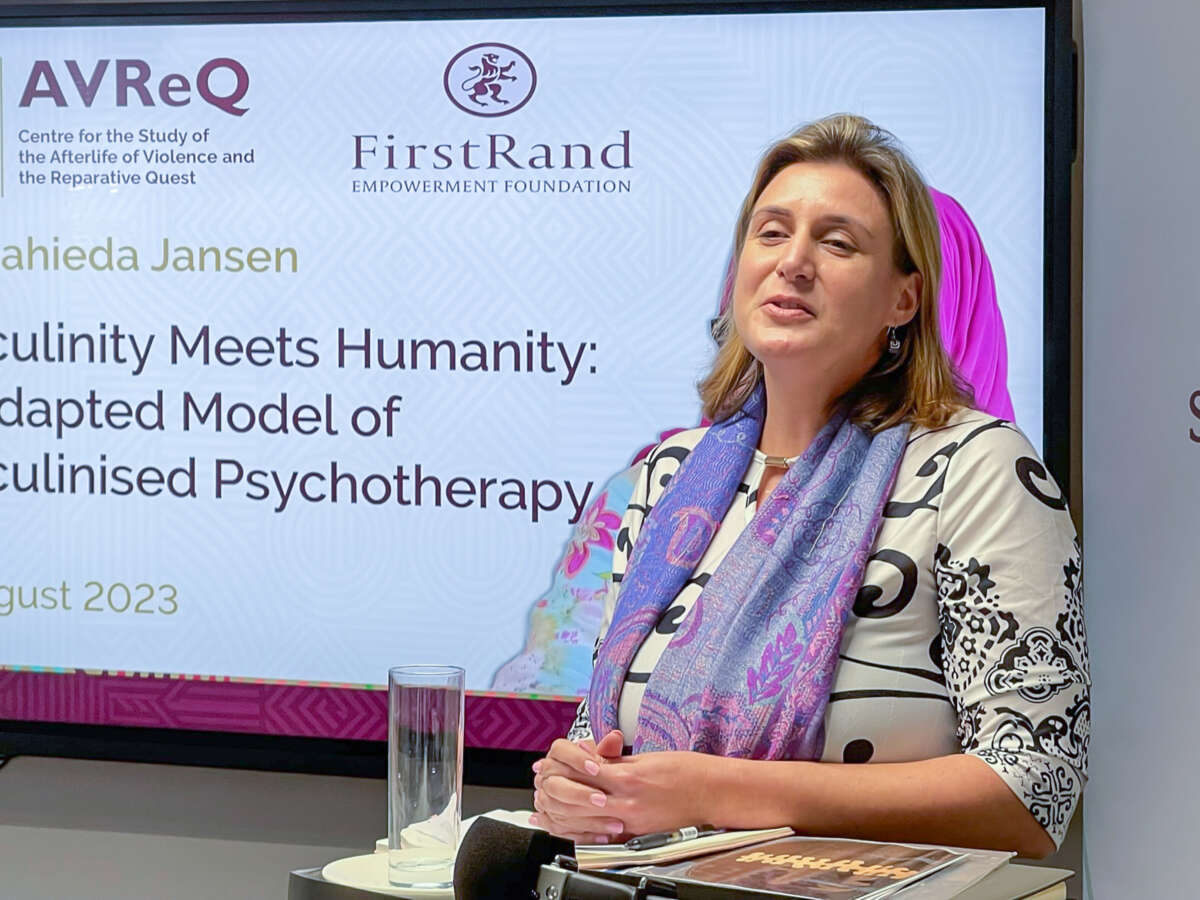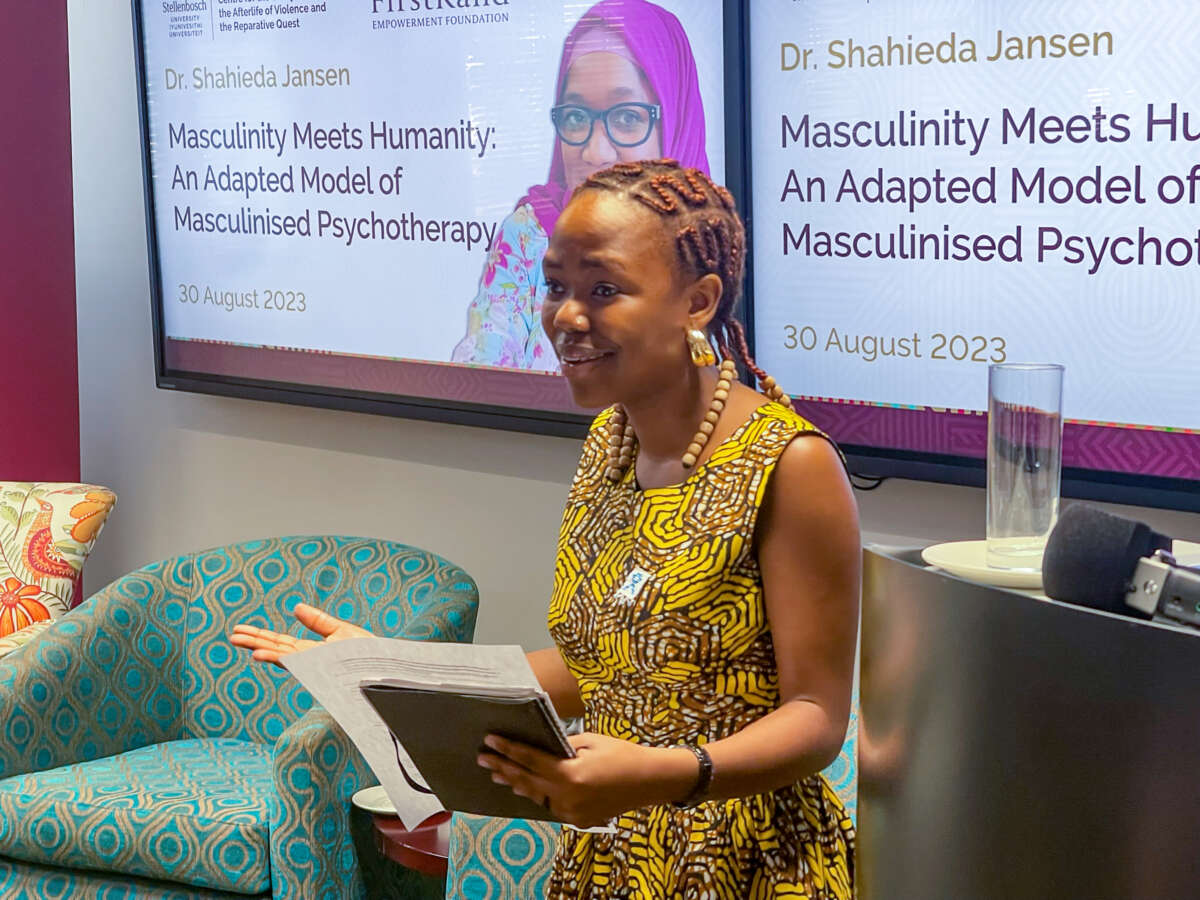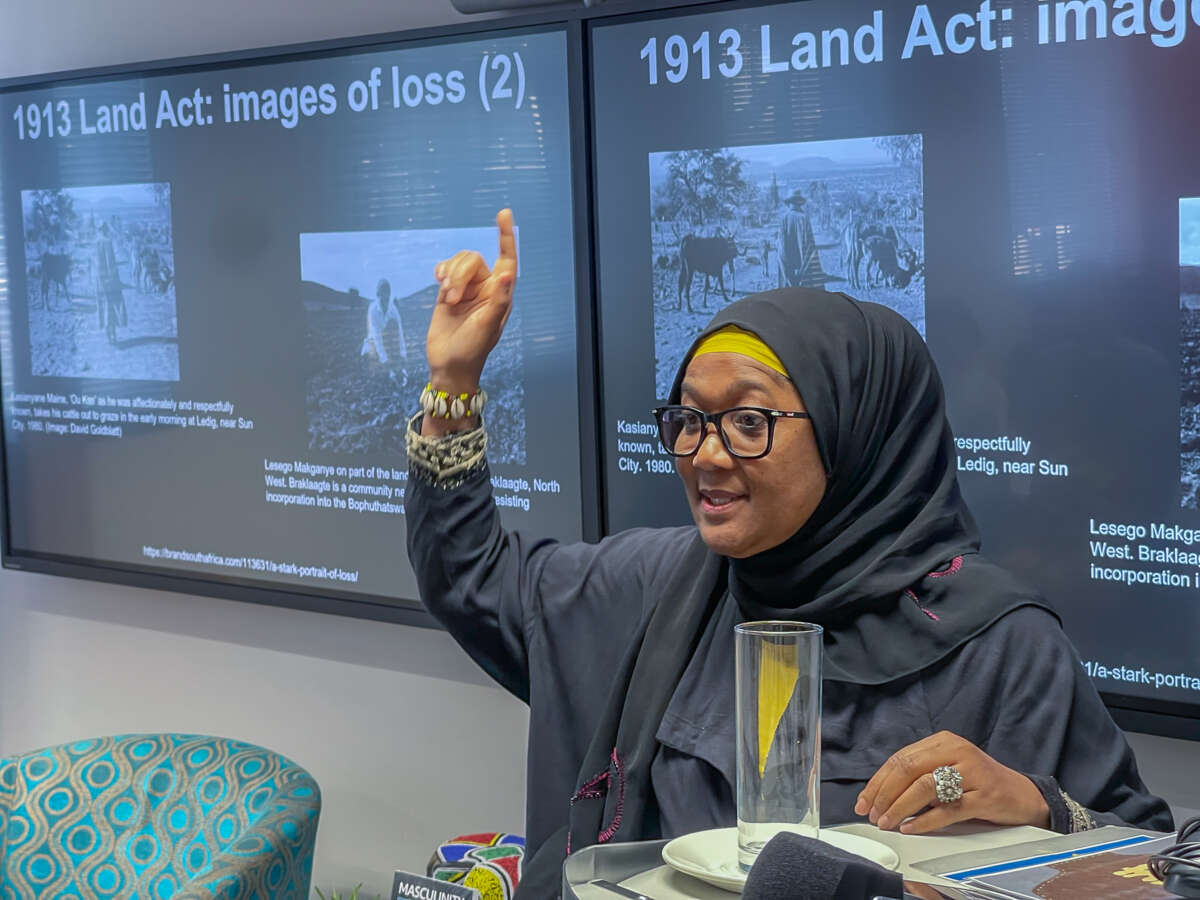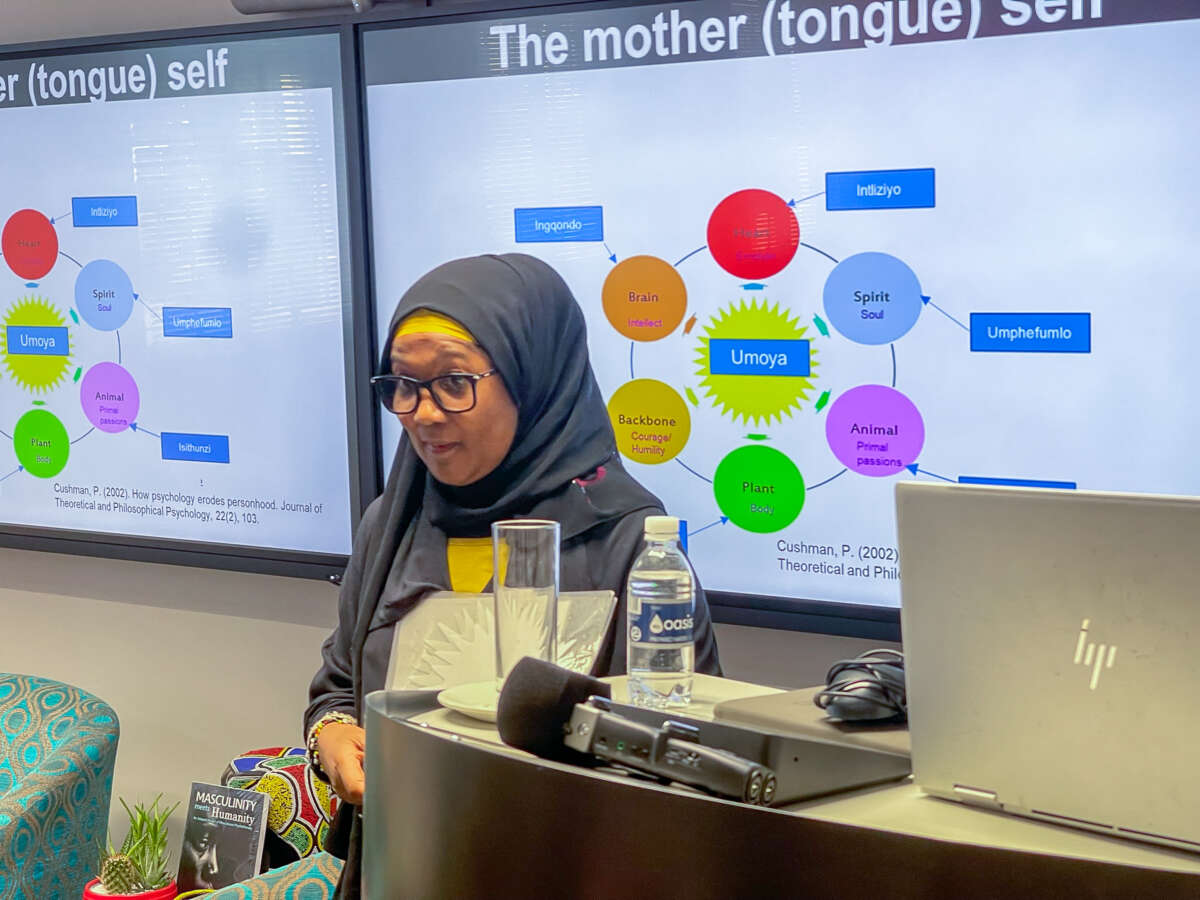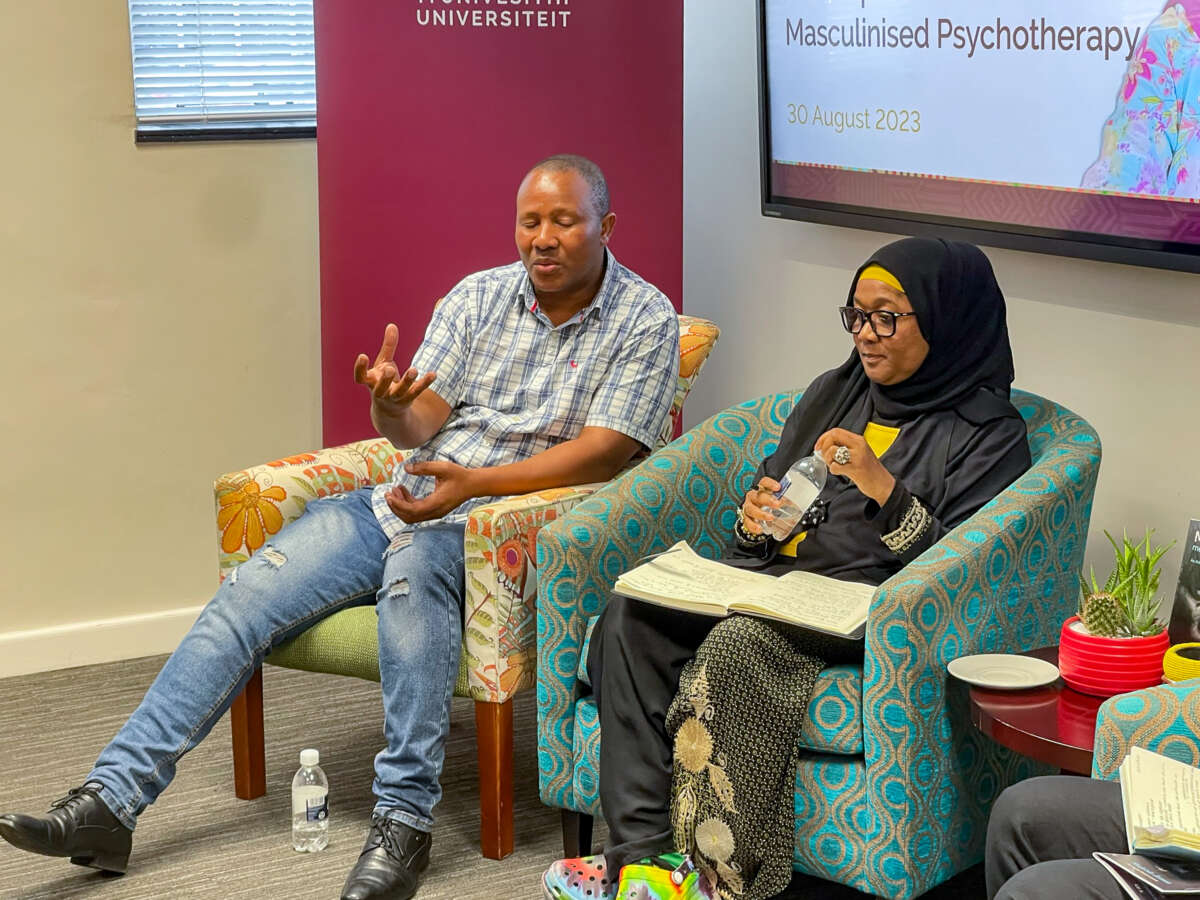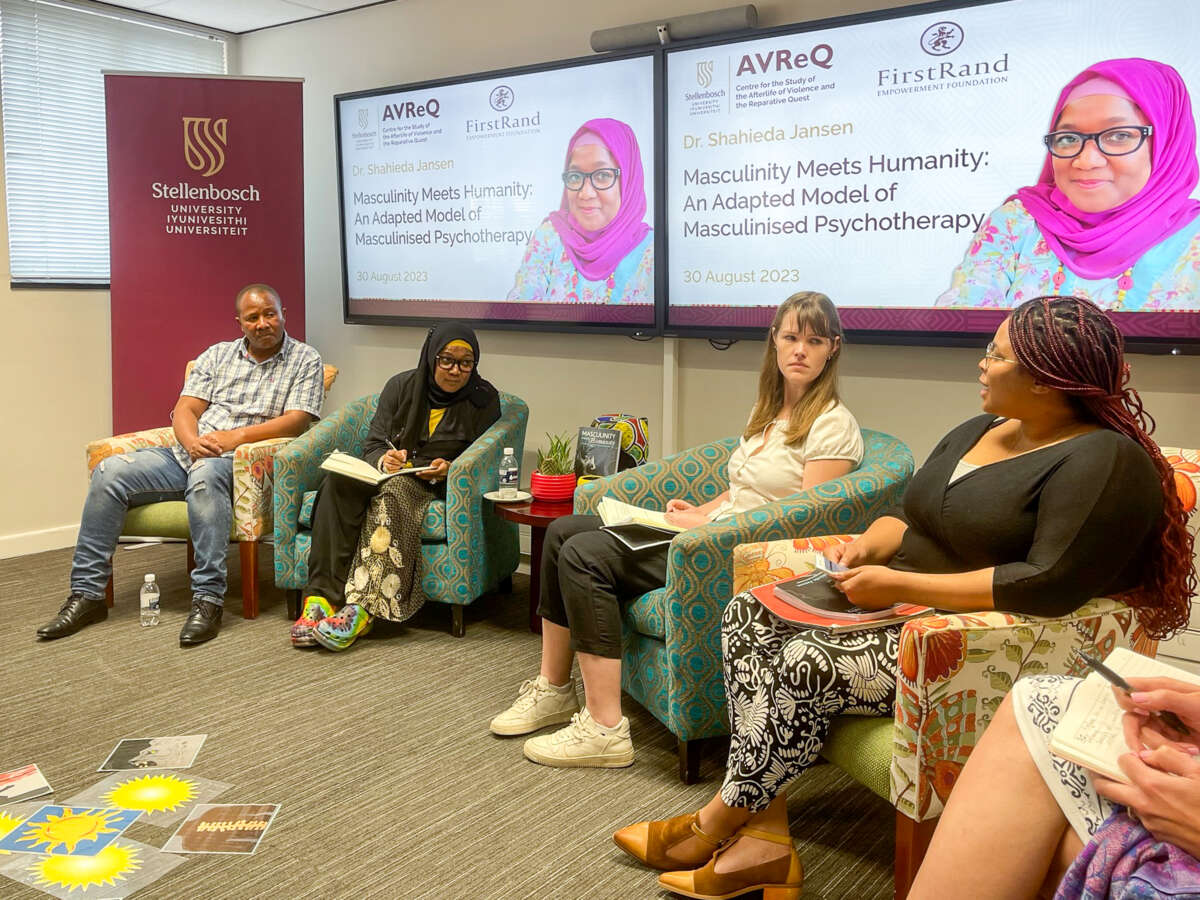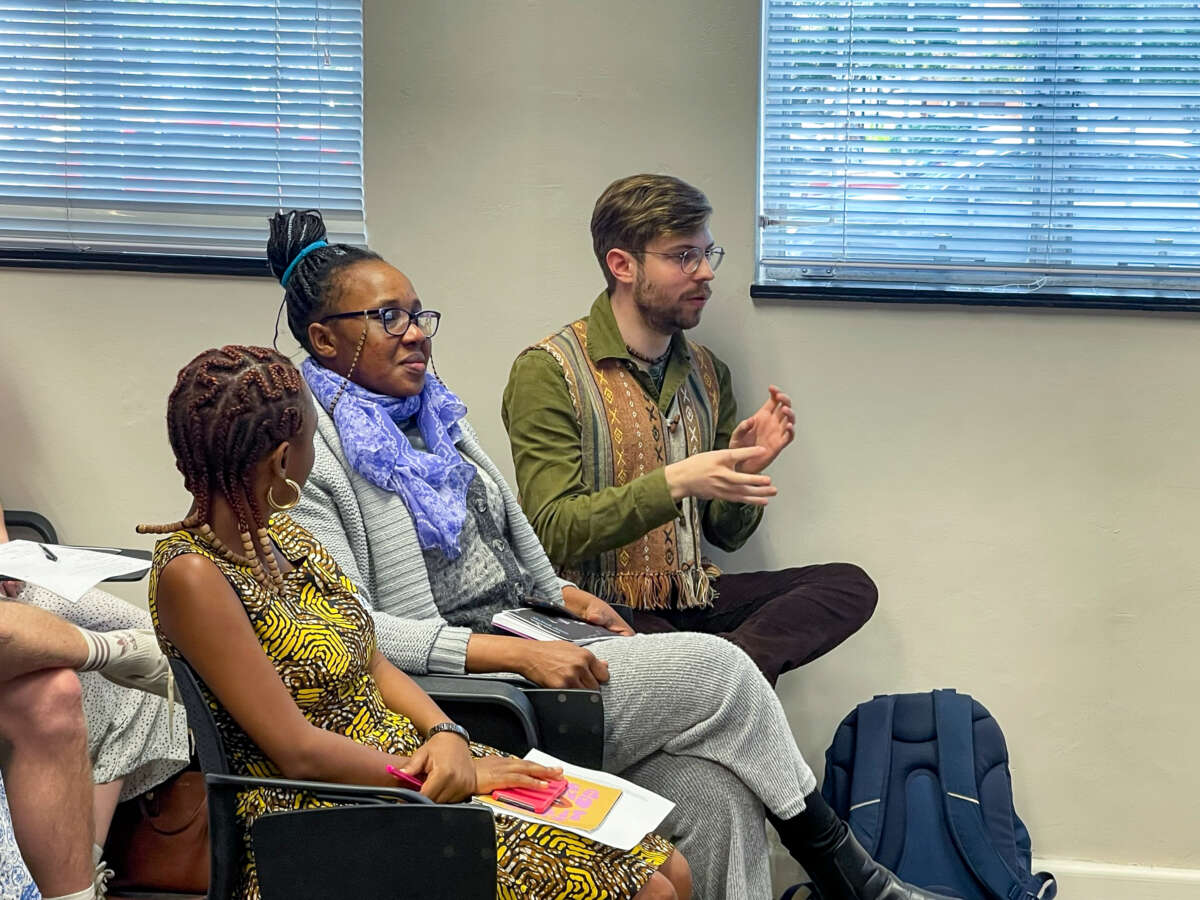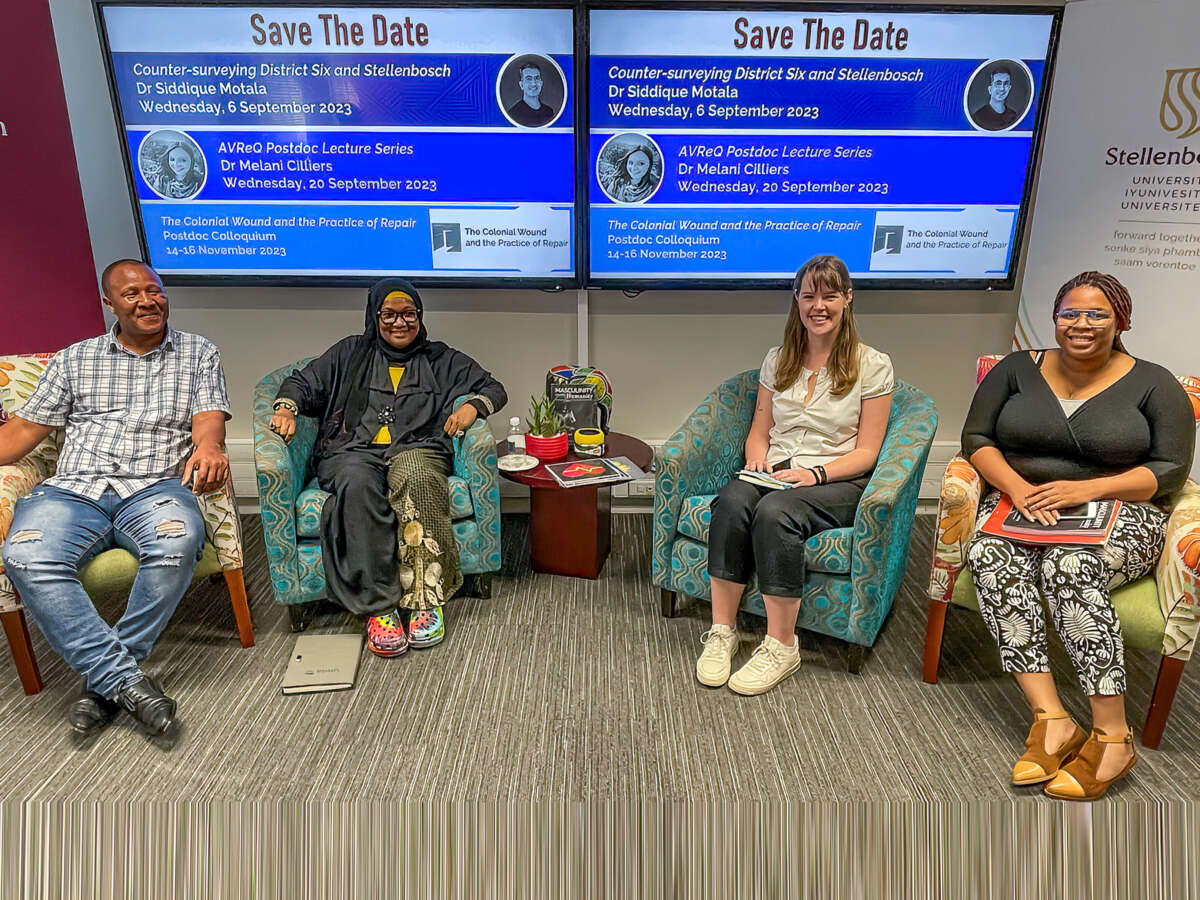Asivile Loki
In collaboration with FirstRand, AVReQ hosted the inaugural session of the AVReQ Gender Dialogues which occurred at the centre’s seminar room at Stellenbosch University. Delivering an incredibly pertinent and insightful lecture on her latest publication titled Masculinity Meets Humanity: An Adapted Model of Masculinised Psychotherapy, Dr Shahieda Jansen reflected on her group psychotherapy experiences with her male clients to effectively illustrate the urgent necessity to prioritise the wellbeing of males. Initially intrigued by her men’s group members’ commitment to their own personal transformation, the author, a clinical psychologist and the current Acting Regional Director of Unisa’s Western Cape Region, interrogates the myth of male alexithymia and subsequently challenges the common perception that men are reluctant to seek therapeutic transformation. In spite of literature affirming that men lack self-awareness and are hesitant to seek help, Jansen’s engagements with her clients reveal that men are not only invested in their mental health but they are also capable of self-monitoring it.
Jansen began her presentation with a contextualization of foundational violence whereby she skilfully traced South Africa’s troubled and difficult history. Highlighting the ramifications of racial immiseration under forced labour and the migrant labour system, the fragmentation of the Black family unit as well as the disorientation and emasculation triggered by the apartheid regime’s laws such as the 1913 Land Act. Quoting the Nigerian author, Chimamanda Ngozi Adichi, Jansen emphasized the danger of telling a single narrative and she therefore asserted that it is essential to historicize and consequently “tell the whole story” when evaluating the positionality of Black men in the nation. In concert with the current controversial turn towards the centralization of male wellness, Jansen further communicated her intention to stimulate a strikingly different conversation concerning boys and men.
The dialogues that she proposes are grounded in the inescapable interrelatedness of men, women, and children in our society and she argues that an awareness of this interrelatedness can ignite empathic insights thereby facilitating intentional and sensitive responses regarding males. With the focus on self- improvement, Jansen employs a concept that she describes as “masculinised psychotherapy” which encompasses the removal of women to concentrate on men thereby eradicating the socialised scripts that dictate how men behave in relation to women. In the absence of these labels and expectations, she asserts that men are liberated from their everyday socialised scripts and are encouraged to express their emotions in their chosen manner without any restrictions. The respondents of the session included Xolile Pro Zulani, who is a facilitator from Gender Equality and Reconciliation International (GERI), and two FirstRand masters fellows, Charisma Mdunyelwa whose research is focused on NGO spaces and how they mediate and
negotiate violent histories while serving women in South African communities as well as Kate Wood-Smith whose research explores the experiences and identity construction of digital gender-based violence activists in South Africa. With a background in social work, Charisma was particularly captivated by Jansen’s integration of an ubuntu-inspired personhood discourse of trust, empathy and transformation with modern Western psychological practices and she, along with Pro, also shared moving personal stories which acknowledged the complexities of masculine vulnerability. Pro’s reflections on the isolation, hostility and violence that he encountered during his early childhood years was particularly invaluable as he conveyed how his yearning for love and validation as a boy directed him into a life of crime as he desperately tried to attain power and money to prove his worth as a man. Kate reiterated Jansen’s argument in her book, noting that all male psychotherapeutic groups can encourage the exploration of men’s tender emotions and that this facilitates the self-transformation of men. She then questioned how do we nurture these tender emotions while also holding men accountable for past violence? Considering the appalling gender based violence rates in South Africa, Kate’s question specifically resonated with me and I immediately pondered how do we hold men accountable without silencing women or dictating how they express their grievances? How do we employ a language that is sensitive to the intersectional complexities of mental health care for males without compromising women’s rightful expression of rage? Buzzing with curiosity, the audience which encompassed the Stellenbosch University student community, also posed various questions related to the limitations in Jansen’s work. A key point was articulated by one of AVReQ’s fellows, Dr Anell Stacey Daries who highlighted the threat of assimilation and she noted the fact that Jansen’s clients risk reverting to toxic norms once they return to their communities since these norms are often glorified and maintained by their males counterparts. Discussions concerning Jansen’s radical and courageous work continue to echo at AVReQ and we are thankful for the opportunity to explore a different narrative that reminds us that masculinised psychotherapy is an intervention that has the power to assists men for the benefit of our society as a whole.
